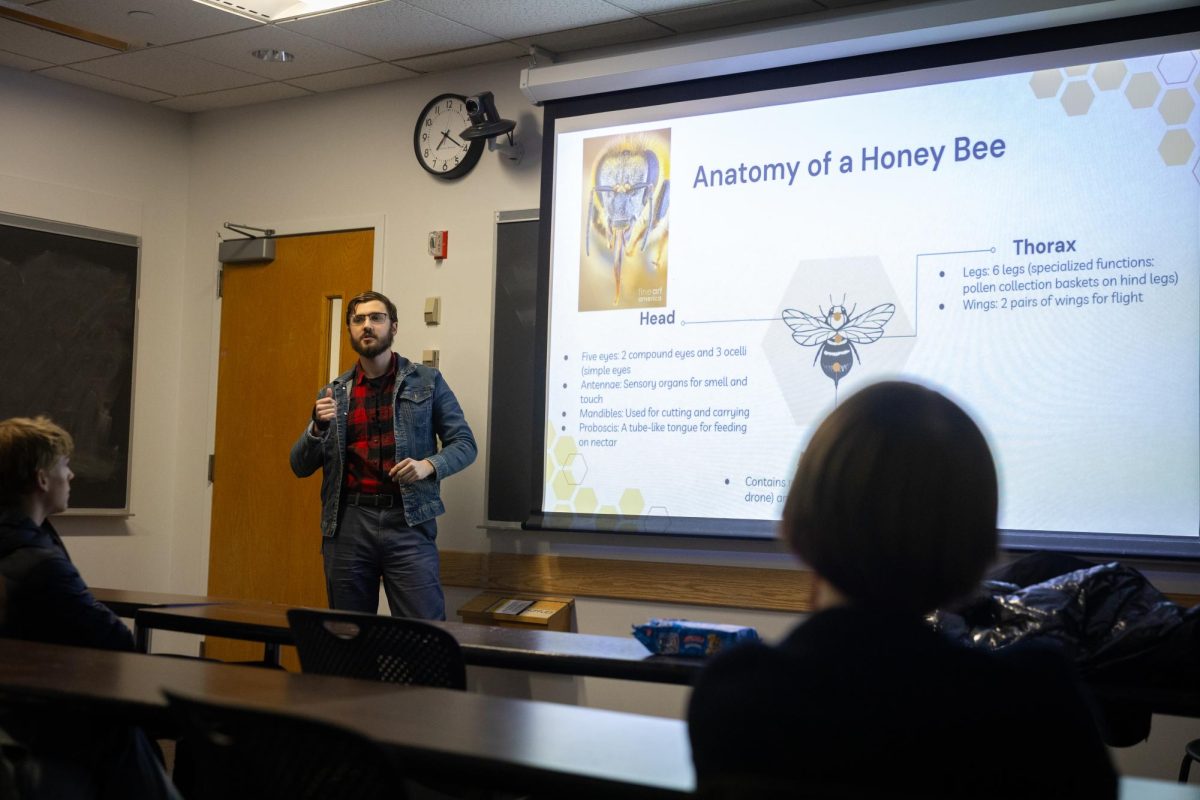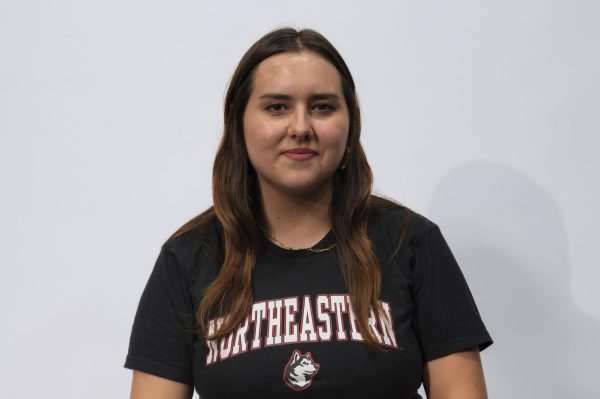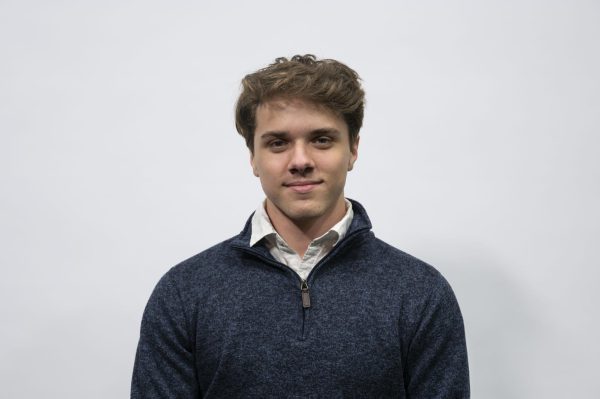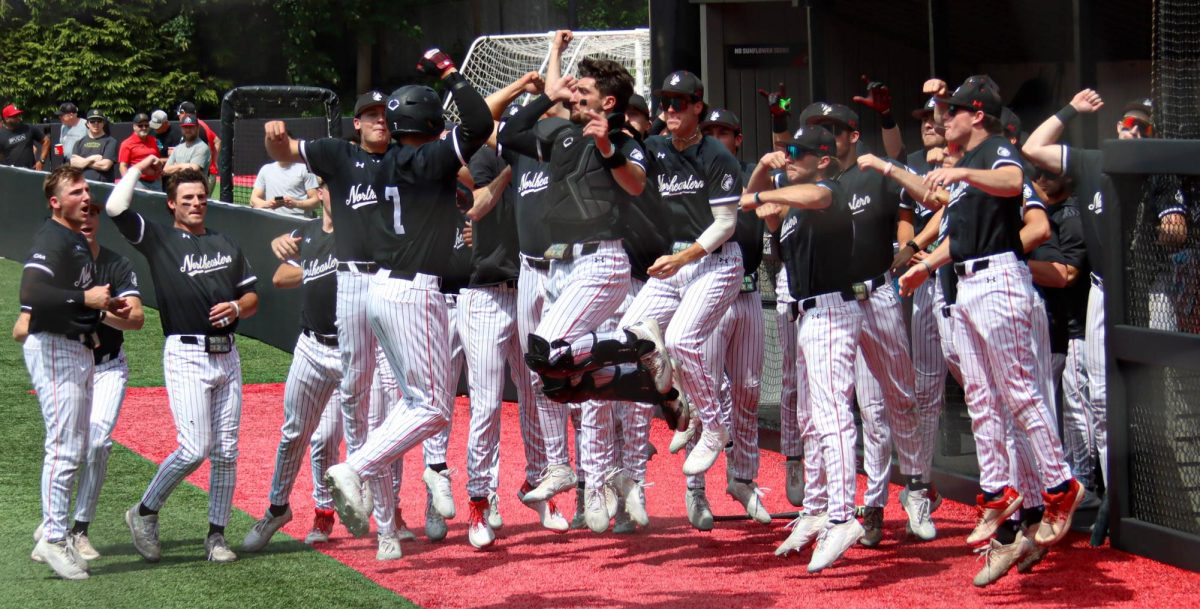Bee club wants more people to join the swarm of students flying to Ryder Hall for Bee School, where students are vying to earn “a Bee. S. in beekeeping!”
The Bee Society hosted its grand opening of “Northbeestern” Bee School March 27, led by Bee Society President and Founder Connor Martin, a third-year bioengineering major. The goal of Bee School is to educate students about honeybees and their natural function as pollinators.
The educational meeting began with an overview of honeybee anatomy, job distribution in the hive, mating and development and concluded with a session of bee trivia.
“The Bee Society was created to bring bees to campus so students who are interested in bees or beekeeping have a chance that they otherwise would never get to try it out,” Martin said. “Our goals are to maintain that opportunity and pass it down to the next group of students.”
Martin, who has been an avid beekeeper for over 10 years, founded the Bee Society in fall 2023. The organization meets weekly on Thursdays at 7:15 p.m. in Ryder Hall and aims to educate students about beekeeping and pollinator advocacy.
The Bee Society maintains student-run beehives on campus, the first of which was installed in April 2024 with the help of the Northeastern University Arboretum. The hives are located by the Richardson Plaza clock tower overlooking Willis Hall. Hive inspections take place on weekends during the warmer months.
“Last semester, I went to a lot of meetings and I thought it was pretty cool,” said Yehsun Cho, a second-year biology major. “I am pretty excited for there to be better weather so I can participate too.”
In October 2024, the Bee Society worked with the Boston Parks and Recreation Department to relocate a honeybee hive that was discovered in a fallen willow tree branch at the Boston Public Garden. The students transported the fallen hive to its new home on Richardson Plaza. Best Bees, a Boston-based company aiming to protect and expand the pollinator population, supplied equipment to assist in the hive rescue.
“There’s a huge bar for entry in beekeeping. It’s very expensive. It’s labor-intensive in terms of getting started,” Martin said. “There’s a lot of research that has to go into it, so I wanted to give people a chance to try it out.”
The Bee Society has many plans for the future, including taking a field trip to Greenfield, where Reverend Lorenzo Langstroth, the “father of modern beekeeping,” lived.
Bee Society Treasurer Jessi Wood, a first-year chemical engineering major, also hopes to host workshops to teach students how to make products such as lotion and chapstick from beeswax. Wood’s family has been keeping bees since the 1960s, and she has taken an active role in the family tradition since she was young.
“My passion and obsession with bees has just grown since then,” Wood said. “Every time I learn something about bees, I’m like, ‘That’s the coolest thing I’ve ever heard in my life. I need to know more.’”
Students do not need any beekeeping experience to be a member of the Bee Society. Jesse Mount, a second-year biochemistry major, tried out beekeeping for the first time on campus and now serves as the club’s scheduling coordinator.
“Initially, a while ago, I was afraid of bees,” Mount said. “… I guess it changed for me when I went to the hive meets.”
The Bee Society has also worked with other organizations on campus, such the Husky Environmental Action Team and the Wildlife Club. Alongside the Cheese Club, the Bee Society hosted a cheese and honey tasting April 3.
“I think it was world-changing,” said Tarun Iyer, a second-year chemical engineering and data science major, about his first bee club meeting. “I learned so much and I can’t wait to come back.”












